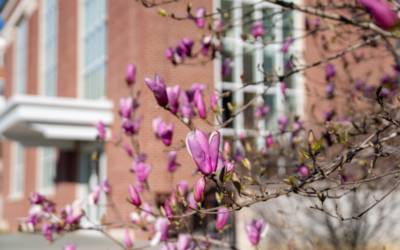Canvas Basics: The Fundamentals
Learn the basics of Canvas overall, including global navigation, communication tools, and the Dashboard. You will be able to set up the basics of your overall Canvas to begin designing your courses. This session is designed for faculty who are brand new to Canvas and would like to know how to navigate Canvas.
Crafting and Grading Assignments, Quizzes, and Discussions in Canvas
Effectively use the primary tools in Canvas, like Assignments, Discussions, Quizzes, Gradebook, and SpeedGrader at the next level. This session is designed for faculty who have some experience using Canvas.
Lecture Capture with YuJa
YuJa is an all-in-one service for recording, editing, storing and streaming multi-formatted video and audio content, including screen capture, across any device. In addition to lecture capture, YuJa (pronounced “you-jah”) can be used for video management, live streaming, and creating video quizzes. YuJa can be used from within the classroom or from a personal computer or mobile device. It is available to all faculty, staff, and students and is integrated with Canvas.
Virtual Instruction: Best Practices & Creative Ideas
In this session, Assistant Professor of Business Communication Stephen Lind will offer advice based on his experience teaching online. He’ll cover best practices for designing and facilitating online instruction, share some creative ideas (and maybe a couple of tool suggestions) and offer advice and ideas based on your questions!
Keeping Students Engaged with Course Readings: Perusall
Perusall is a free, online tool that can be accessed within Canvas. The professor uploads a reading and students can read, annotate, and engage with the material from anywhere. Geology professor Jeff Rahl will share his tips and experiences using Perusall, and Brandon Bucy will show you how to enable the tool in Canvas, upload, and annotate documents.
Introduction to Blogging with WordPress
Interested in having students blog or create a web site? Faculty can request one or multiple WordPress site(s) and Academic Technologies is able to provide virtual training and guidance to students so they can create and edit pages and posts.
Pedagogy and Purell: Alternatives for Assignments, Activities, and Assessments Brown Bag
In this session, professors, librarians, and academic technologists will team up to answer your questions about your course and virtual instruction. Do you need alternatives for a face-to-face activity? Is there an assignment or end-of-term project that has you stumped? Arrive with questions, leave with options!
Audio Comments: Making Your Feedback More Personal
When you’re not able to meet with your students in person, audio comments provide a way to add intonation and a personal touch to your feedback on assignments. Audio comments also help students focus on holistic evaluation, encourage minimal marking, and are a helpful tool for guiding students in revision. Plus, they’re asynchronous, so you get to provide that human connection no matter what your and your students’ schedules are like.
This session will go over options for recording and posting audio comments via Canvas, Sakai, or just via email. We’ll also discuss strategies for translating from a written commenting practice to an audio commenting practice, ways to use audio comments in conjunction with student revisions, and ideas for getting the most out of audio comments on different assignments.
Asynchronous and Synchronous Teaching in the IQ Center Classroom
Learn about some options for virtual instruction in the IQ Center active learning classroom. Presenter: Dave Pfaff, IQ Center Academic Technologist
Options for Virtual Labs in Science
During this session, we will explore some online options for video and simulation content on the web that may help with lab courses. We will address some of the pedagogical concerns and offer some possible methods of creating content in house for your lab courses. We will also include time to discuss your special cases. We are collecting some online resources on this page: possible resources for lab classes.
Videoconferencing Options: Zoom and Microsoft Teams
This session will cover the videoconferencing options available to all professors.
Putting the Personal in the Virtual
Workplaces are communities that play a larger role in our lives than filling the time from 9-5 and offering a paycheck. This session will focus on providing a common language and framework for identifying and meeting our own social needs as well as supporting community members who are temporarily working remotely. The focus will be on how we might embed small but significant connection points into our daily work. Guest presenter, Jeanine Stewart will share specific suggestions and open a discussion related to how each person can contribute to a sense of community and foster robust engagement while working virtually.
Liberal Arts Values in the Virtual Classroom
In a campus-based, liberal arts setting faculty and students alike value community and small group interaction. As courses and interactions move online, we need to find new ways to represent core values of personal connection and inclusive engagement despite the challenges of inter-personal distance and mid-term disruptions. Guest presenter, Jeanine Stewart will share specific suggestions and open a discussion related to techniques professors can use to maintain a sense of community and foster robust engagement in the virtual classroom.




